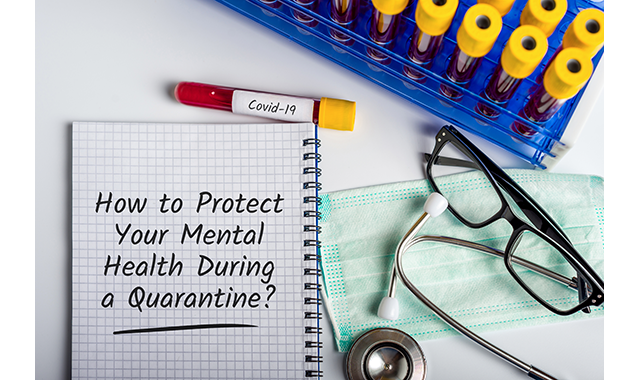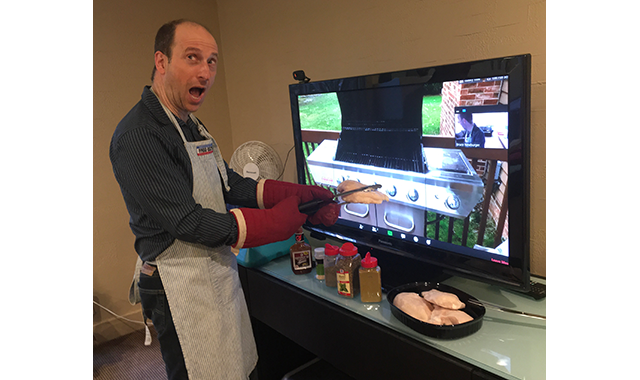COVID-19 and self-care
Mental health issues are skyrocketing due to COVID-19. Here are some tips on creating and implementing a self-care plan for yourself.

Mental Health Plans During a Pandemic
We are sitting in anticipation that the crest of this pandemic is about to hit. Different reports give different timetables. But we need to stay focused and not let fear and anxiety destroy us in the process.
What is happening in Cleveland? Ohioans are fortunate to have a governor who is a big picture person. He is leading us by focusing on what is best for our citizens. Like the rest of the country, many of us here are out of work. Dentist offices are shut down except for emergencies, putting so many of us out of work and on unemployment. But most important is that we are slowly starting to “get it.”
The risk for mental health issues is skyrocketing right now, hence the importance of encouraging creating a mental health plan for yourself.
Start with answering these questions.
- Are you staying in the present with your thinking? (Focus only on the day-to-day, or even hour-by-hour if necessary.)
- Are you exercising? (It really makes a big difference.)
- How often are you getting out of the house? (Sit outside if the weather is nice. Change up your scenery, even if that means a walk to the end of the driveway.)
- Are you getting creative as to how you can communicate with those you love? (Family chats, happy hours, and even games can all be done virtually. FaceTime, Zoom, and Facebook Messenger are important for social connections in such isolating times.)
- How many hours a day are you watching or reading about COVID-19? (Pace yourself.)
- Has your sleep pattern changed dramatically? (Staying up all night and sleeping all day is not a healthy practice.)
- What are you doing for other people? (Perhaps, call your neighbors and offer to do a grocery store run for them. Just be sure to maintain social distancing guidelines.)
- Are you overeating due to stress or boredom? (That can be a difficult cycle to break, but you can do it.)
- What are the things you can do to structure your day? (It will help you feel more in control of your time.)
- What is the shower and grooming situation? (Are you giving up or finding reasons to get up each day?)
Sometimes letting loose and being silly are healthy ways to cope with stress and anxiety.

As a social worker, I believe that one of the biggest issues for all of us is how we are managing our anxiety. If we become ill, anxiety will make the symptoms worse. If we stay healthy, we can be paralyzed from the fear of contagion as well. Follow healthcare recommendations but focus on what you have control over. You do control your behavior and your fears. Don’t feed into those fears as they can take ahold of you and make your health worse, whether you ever get this virus or not.
Minimizing the situation is not the aim here. But it’s important to focus only on what is in our control. No one knows what is going to happen next. For that reason, we all need to focus only on what we can do.
- I can limit my intake of news about this virus.
- I can offer to help my neighbors, even if that means just calling to check on them.
- I can wash my hands and keep my home clean.
- I can limit my visits to the grocery store by keeping enough food in my home, even nonperishables I wouldn’t normally eat. (If we don’t use it, I can donate it to the Food Bank.)
- I can learn new things such as free conference calling to stay connected to my family and friends.
- I can make some goals and then achieve them.
- I can send funny things out to my family daily to make them laugh.
- I can help my clubs go online and train others how to use those platforms.
- I can read a book.
- I can write in a journal.
- I can paint, draw, and pursue hobbies.
- I can learn what exactly gaming is online.
- I can learn almost anything and then do it.
- I can turn off the TV and move around instead of just letting the days pass one into the next.
- I can talk to my dentist about calling our patients to check in on them periodically. (Why not? I am free, and it would be appreciated.)
- I can clean my house. (Maybe not appealing, but for some, it is therapy.)
- I can plant a garden.
- I can improve my cooking.
- I can go on YouTube and find music videos that make me feel good.
- I can give myself a break. These are truly trying times for all of us.
The key to our survival is how well we cope and manage. We will get through this. The world isn’t ending, it’s just changing rapidly. Try to let go of the losses and look for positive things that are happening all around. The most important factor is to open your eyes. Control what you can control, such as your thoughts and behaviors.
Share with me at diana2@discussdirectives.com and let me know how you are coping.